 Larry Towell
Analysis
Larry Towell
Analysis
11/21/2006
Rony Brauman
Rony Brauman reviews the myths and mechanisms governing the deployment of international aid following the Southeast Asian tsunami in December 2004.
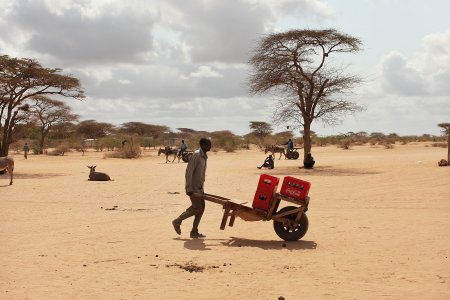 Spencer Platt
Analysis
Spencer Platt
Analysis
07/03/2014
Rony Brauman
Michaël Neuman
We often hear it said within MSF that the aid system is unable to provide effective relief, or that the aid system’s ability to provide aid is in decline. These statements, which suggest that MSF is itself outside the "system", are based on the very real number of people in relief operations who need help but do not receive it, or do not receive enough of it.
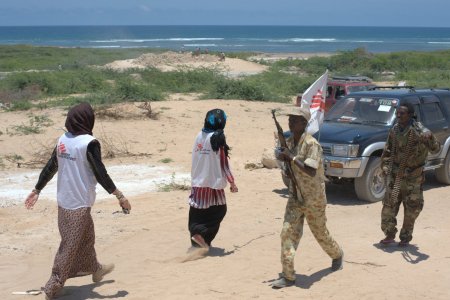 Yann Libessart
Analysis
Yann Libessart
Analysis
09/01/1993
Rony Brauman
In 1993, Médecins Sans Frontières left Somalia and denounced the methods of UN troops who were violating the very humanitarian principles in whose name they intervened.
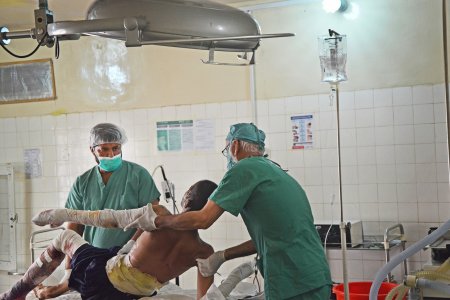 Kate Stegeman
Review
Kate Stegeman
Review
03/30/2017
Michaël Neuman
Michaël Neuman's review of "Medical Humanitarianism: Ethnographies of practice" edited by Sharon Abramowitz and Catherine Panter-Brick (Philadelphia: University of Pennsylvania Press, 2015)
 Xavier Lassalle
Interview
Xavier Lassalle
Interview
11/28/2016
Jean-Hervé Bradol
Marc Le Pape
Interview with Jean-Hervé Bradol and Marc Le Pape. The book is published by Manchester University Press and will be out in January 2017.
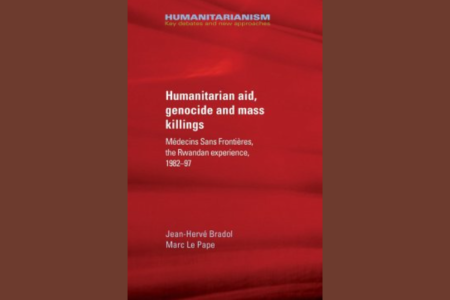 Book
Book
11/04/2016
Jean-Hervé Bradol
Marc Le Pape
Throughout the 1990s, Médecins Sans Frontières (MSF) was forced to face the challenges posed by the genocide of Rwandan Tutsis and a succession of major outbreaks of political violence in Rwanda and its neighbouring countries.
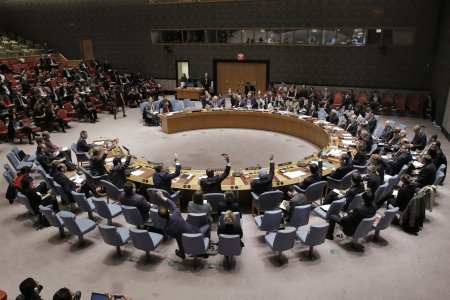 Paulo Filgueiras
Interview
Paulo Filgueiras
Interview
09/27/2016
Michaël Neuman
Fabrice Weissman
Interview with Michaël Neuman and Fabrice Weissman, research directors at Crash. On Wednesday 28 September, MSF is invited to attend a UN Security Council briefing on resolution 2286, adopted in May 2016, which strongly condemns attacks against medical personnel and establishments in conflict situations.
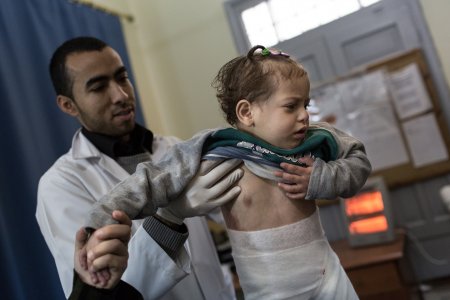 Chris Huby
Opinion
Chris Huby
Opinion
07/14/2014
Jonathan Whittall
Michaël Neuman
A few days after the start of the operation 'Protective edge', Jonathan Whittall, Head of Humanitarian Analysis at MSF posted an opinion in which he questions MSF's role in Gaza. Michaël Neuman, Director of research at MSF Crash responds.
 Spencer Platt
Analysis
Spencer Platt
Analysis
07/03/2014
Michaël Neuman
Rony Brauman
We often hear it said within MSF that the aid system is unable to provide effective relief, or that the aid system's ability to provide aid is in decline. Rony Brauman and Michaël Neuman aim at exploring MSF's relationship with the aid system, while showing how the ambitions of the aid system itself have evolved.
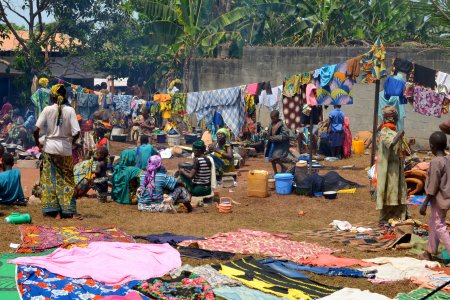 Remi Djian
Opinion
Remi Djian
Opinion
05/05/2014
Michaël Neuman
Delphine Chedorge
For a few months now, the world's response to the organized expulsion of the Muslim community out of the Central African Republic (CAR) can best be described as strikingly mute.
 Roger Job
Speaking Out Case Studies
Roger Job
Speaking Out Case Studies
04/03/2014
Laurence Binet
This case study is describing the difficulties and dilemmas met by Médecins Sans Frontières (MSF) during the genocide of Rwandan Tutsis in April, May and June 1994.
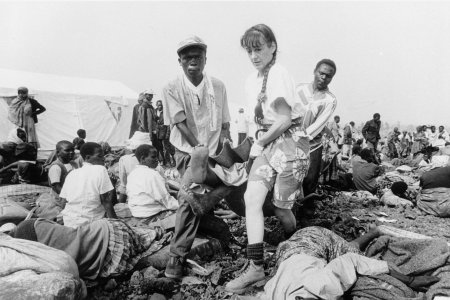 Remco Bohle
Speaking Out Case Studies
Remco Bohle
Speaking Out Case Studies
04/03/2014
Laurence Binet
This case study is describing the constraints and dilemmas met by MSF when confronted with camps under the tight control of "refugee leaders" responsible for the genocide of the Rwandan Tutsis from April to June 1994.
 Larry Towell
Analysis
Larry Towell
Analysis










